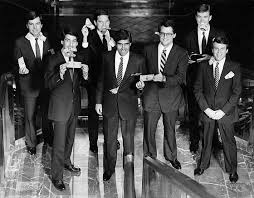Carly Fiorina’s disastrous stretch as Hewlett-Packard’s CEO can be summed up thusly: a huge debacle, a golden parachute, a long period of inactivity. Now she’s trying to ride failure and inertia to the White House, and in this strange era of anti-politics, she’s actually one of the Republican frontrunners, seemingly rewarded for her lack of government experience.
Fiorina namechecked Steve Jobs at the most recent GOP debate, trying to get a posthumous rub from our era’s most-celebrated businessperson. Steven Levy, having written the book on the iPod (quite literally), recalls in a Backchannel article how the Apple chief defeated Fiorina in a landslide in the two companies’ dealings. Let’s put it this way: Steve Jobs would have been a terrible President, and the person he clearly outmaneuvered maybe shouldn’t get the gig, either.
From Levy:
Ms. Fiorina’s trainwreck stint at HP has been well documented. But I want to address one tiny but telling aspect of her misbegotten reign: an episode that involved her good friend Steve Jobs. It is the story of the HP iPod.
The iPod, of course, was Apple’s creation, a groundbreaking digital music player that let you have “a music library in your pocket.” Introduced in 2001, it gained steam over the next few years and by the end of 2003, the device was a genuine phenomenon. So it was news that in January 2004, Steve Jobs and Carly Fiorina made a deal where HP could slap its name on Apple’s wildly successful product. Nonetheless, HP still managed to botch things. It could not have been otherwise, really, because Steve Jobs totally outsmarted the woman who now claims she can run the United States of America.
I can talk about this with some authority. Not only have I written a book about the iPod, but I interviewed Fiorina face to face when she introduced the HP iPod at the 2004 Consumer Electronics Show, and then got Steve Jobs’s side of the story.•



